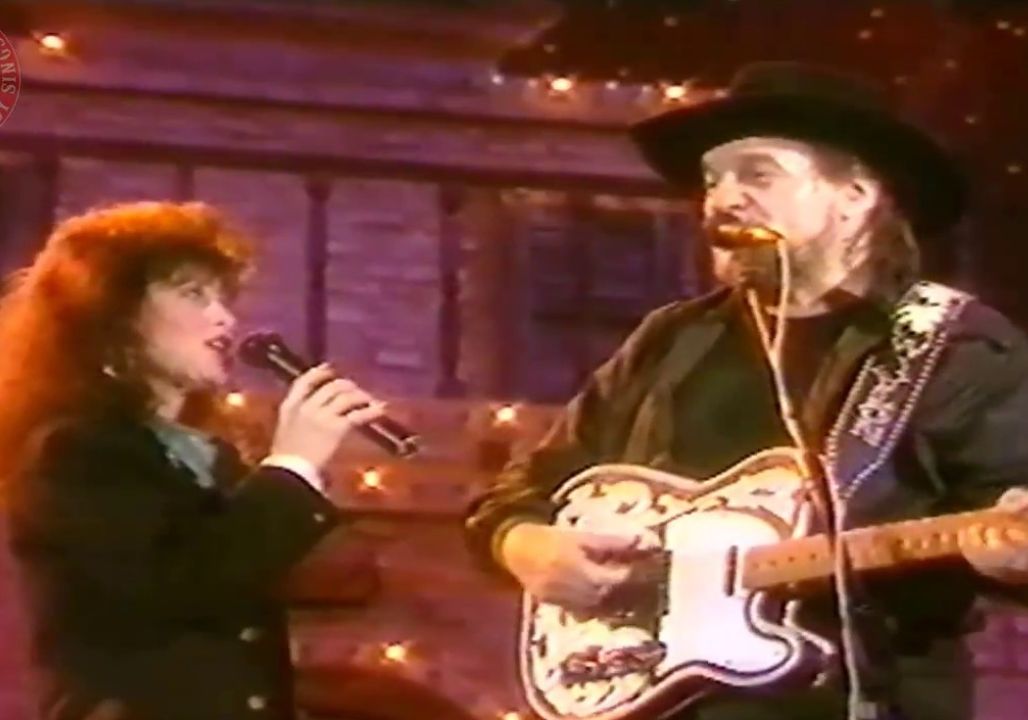Introduction:
The landscape of popular music is rich with instances of artists reinterpreting iconic songs, sometimes to reveal new facets, other times to firmly stamp their own identity onto a well-trodden melodic path. When Waylon Jennings and Jessi Colter, two fiercely independent and distinctive voices in country music, approached “Suspicious Minds,” they were tackling a song inextricably linked with Elvis Presley, whose 1969 version was a monumental global success. Yet, Waylon and Jessi, both as individual artists and as a married couple whose own relationship was a subject of much public and artistic chronicle, brought a unique and deeply personal dimension to this tale of lingering doubt and the yearning for trust.
Their version, notably included on their 1970 album “Waylon & Jessi” and later on their pivotal 1976 collaboration “Wanted! The Outlaws,” strips away some of the lush, almost operatic grandeur of Presley’s arrangement. In its place, we find a rawer, more introspective interpretation. Waylon’s signature baritone, imbued with a world-weary gravitas, carries the weight of suspicion and frustration, while Jessi Colter’s soulful, often haunting vocals provide a poignant counterpoint, a voice that seems to plead for understanding and reconciliation.
The genius of their rendition lies in its transformation into a genuine duet, a conversation between two individuals caught in this emotional trap. Where Elvis’s version is a powerful, almost solitary cry against the perceived injustice of mistrust, the Jennings-Colter take feels like an intimate dialogue, showcasing the complexities and raw edges of a relationship under strain. The signature “caught in a trap” refrain, in their hands, resonates with a shared, rather than singular, desperation. The interplay between their voices, sometimes harmonizing, sometimes in a more call-and-response fashion, underscores the lyrical tension.
Musically, their arrangement often leaned into the more stripped-back, Telecaster-driven sound that characterized much of Waylon’s Outlaw-era work. There’s an earthiness, a gritty realism that grounds the song in a different emotional space than the polished sheen of the original. This wasn’t merely a cover; it was a re-contextualization. It spoke to the themes of honesty and relational struggle that were often present in their own songwriting and public personas.
“Suspicious Minds,” in the hands of Waylon Jennings and Jessi Colter, becomes less of a pop anthem and more of a country-soul ballad, etched with the lived experience and undeniable chemistry of two artists who understood the terrain of complex emotions intimately. It serves as a potent reminder that a great song can indeed find new life and meaning when interpreted by artists who bring their own truth and formidable talent to the fore, offering listeners a fresh perspective on a familiar and much-loved narrative. It stands as a compelling example of how a song can transcend its origins and speak with a different, yet equally powerful, voice.

